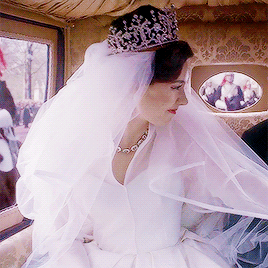The Bluestocking, vol 67: Happy Brexmas
Happy Friday!
I was going to save my Best of 2017 list for the newsletter, but I needed to do some procrastination last weekend, so I did it then instead. Here you are: the best theatre, books, films and TV of 2017, according to one person, me. What did I miss? Hit reply to let me know.
While we're doing self-promotion, I heartily recommend that you dip into my profile of explosives expert Sidney Alford, which I thoroughly enjoyed writing, but basically no one read because they were busy arguing about the election.
Anyway, have a wonderful, peaceful Christmas -
Helen
Dangerous Minds
And Brussel, despite what he wrote in his memoir, never said that the Bomber would be a Slav. He actually told the police to look for a man “born and educated in Germany,” a prediction so far off the mark that the Mad Bomber himself was moved to object. At the height of the police investigation, when the New York Journal American offered to print any communications from the Mad Bomber, Metesky wrote in huffily to say that “the nearest to my being ‘Teutonic’ is that my father boarded a liner in Hamburg for passage to this country—about sixty-five years ago.”
The true hero of the case wasn’t Brussel; it was a woman named Alice Kelly, who had been assigned to go through Con Edison’s personnel files. In January, 1957, she ran across an employee complaint from the early nineteen-thirties: a generator wiper at the Hell Gate plant had been knocked down by a backdraft of hot gases. The worker said that he was injured. The company said that he wasn’t. And in the flood of angry letters from the ex-employee Kelly spotted a threat—to “take justice in my own hands”—that had appeared in one of the Mad Bomber’s letters. The name on the file was George Metesky.
Rediscovered this Malcolm Gladwell piece on forensic psychology while prepping for a podcast on Netflix's Mindhunter. Regular readers will appreciate that when you look at the case which launched the mythology of "mindhunters", it wasn't the lone hero dude who cracked the case with his majestic insights into the human condition, but a woman doing grunt work.
Always the Same Dream
It is 15 years since she died, and memories of her are not as sharp as they were. Which makes Craig Brown’s enterprise not only a marvellous freak of literature but a matchless summoner of our yesterdays. It is a collage, montage or bricolage of glittery bits culled from two hundred biographies, authorised and unauthorised, written by cashiered gossip columnists and treacherous butlers and chauffeurs, plus odds and ends such as the complete transcript of the princess’s Desert Island Discs and the catalogue of her jewellery, sold after her death for £9 million.
The effect is like one of those sweeping Klimt portraits, in which the comet trail of colourful fragments leaves a lasting, wistful impression of an era on the skids. The book is extremely funny and extremely sad. As Brown says towards the end of it, ‘It is Cinderella in reverse. It is hope dashed, happiness mislaid, life mishandled. Nothing is as thrilling as they said it would be; no one is as amusing, as clever, as attractive or as interesting.’
I read Craig Brown's mash-up biography of Princess Margaret when he came on the NS podcast, and it's beguiling and weird. Told in 99 "glimpses", some of them fictional, it's like nothing else.

Quick links:
A supercut of Melvyn Bragg's abrupt openers to In Our Time. "Hello Nietzsche" is my favourite.
The Hamilton cast mashed up British pop songs with the soundtrack. Only half of it works.
There's a re-reading of The Dark Is Rising on Twitter - like a book group. This post explains why it's timely. I *love* those books. Right up there with His Dark Materials.
See you next time!

